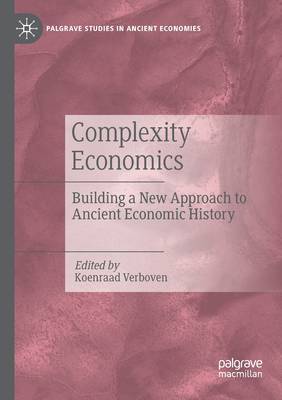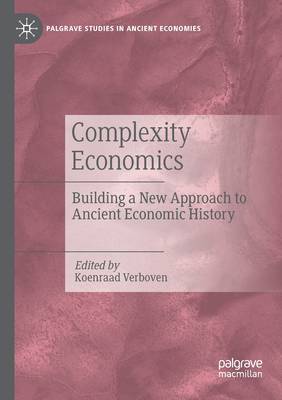
- Retrait gratuit dans votre magasin Club
- 7.000.000 titres dans notre catalogue
- Payer en toute sécurité
- Toujours un magasin près de chez vous
- Retrait gratuit dans votre magasin Club
- 7.000.000 titres dans notre catalogue
- Payer en toute sécurité
- Toujours un magasin près de chez vous
Complexity Economics
Building a New Approach to Ancient Economic History
Description
Chapter 1: Introduction: Finding a new approach to ancient proxy data.- Part I- Theoretical Frameworks and Methodologies.- Chapter 2: Playing by whose rules? Institutional resilience, conflict and change in the Roman economy.- Chapter 3: Networks as Proxies: a relational approach towards economic complexity in the Roman period.- Chapter 4: Evaluating the potential of computational modelling for informing debates on Roman economic integration.- Chapter 5: Visualising Roman institutional environments for exchange as a complex system.- PART II- Urban Systems.- Chapter 6: Social complexity and complexity economics. Studying socio-economic systems at Düzen Tepe and Sagalassos (SW Turkey).- Chapter 7: A method for estimating Roman population sizes from urban survey contexts: an application in central Adriatic Italy.- Chapter 8: Complexity and urban hierarchy of ancient urbanism: the cities of Roman Asia Minor.- PART III- Epidemics.- Chapter 9: Disease proxies and the diagnosis of the late Antonine economy.- Chapter 10: Measuring and Comparing Economic Interaction Based on the Paths and Speed of Infections. The Case Study of the Spread of the Justinianic Plague and Black Death.
Spécifications
Parties prenantes
- Editeur:
Contenu
- Nombre de pages :
- 363
- Langue:
- Anglais
- Collection :
Caractéristiques
- EAN:
- 9783030479008
- Date de parution :
- 27-11-21
- Format:
- Livre broché
- Format numérique:
- Trade paperback (VS)
- Dimensions :
- 148 mm x 210 mm
- Poids :
- 498 g






